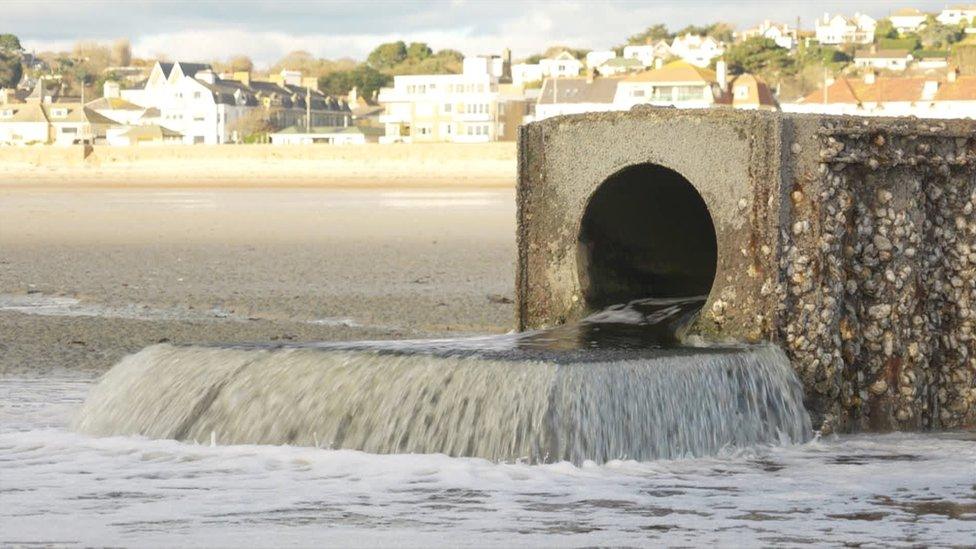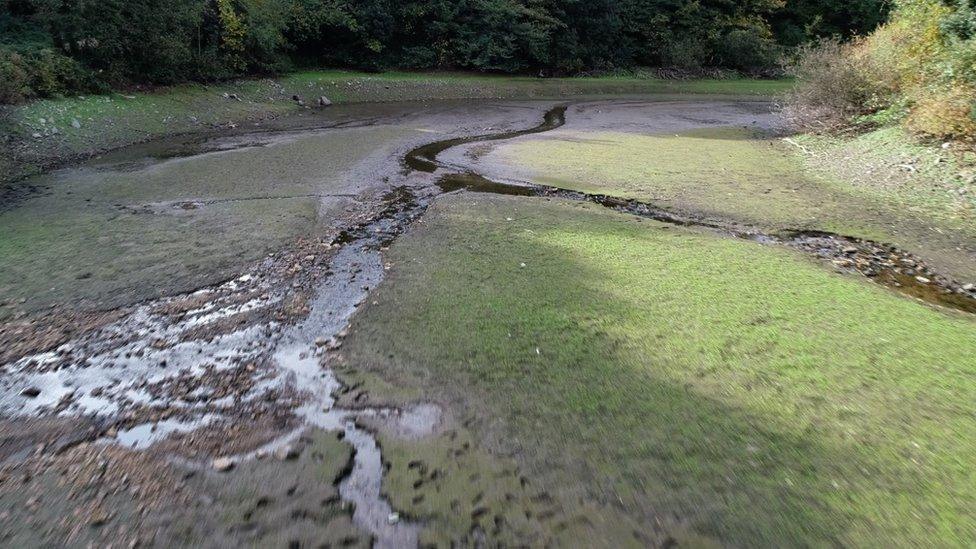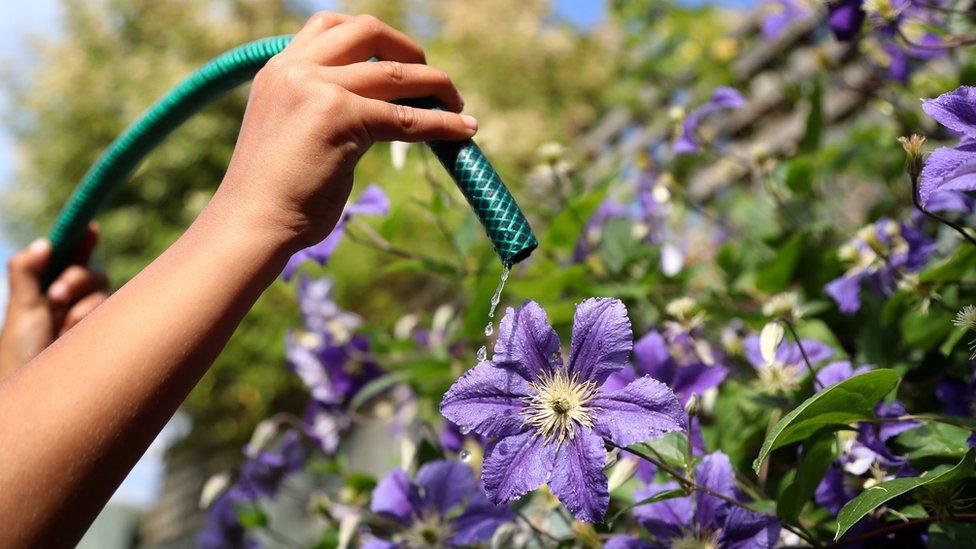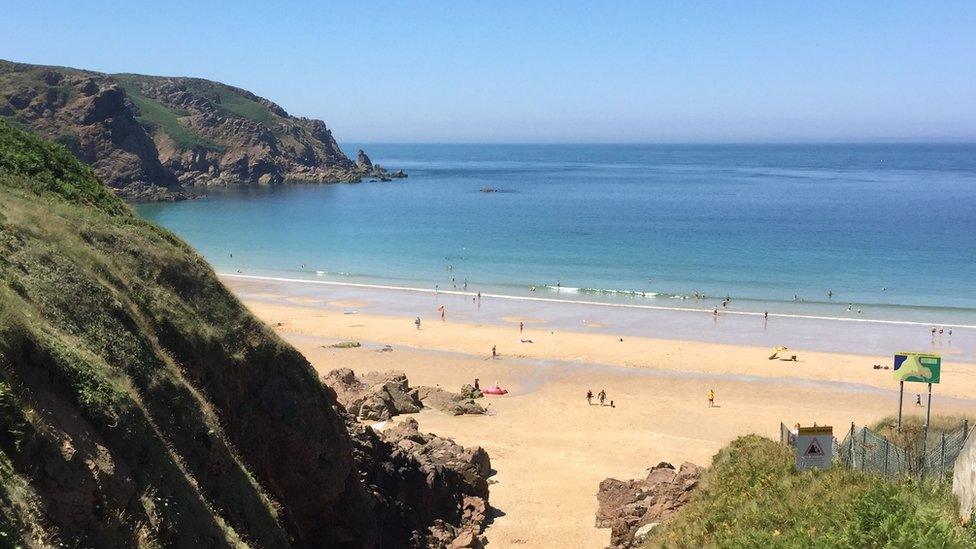Jersey: Sewage could boost island water supplies
- Published

Environment minister Deputy Jonathan Renouf said sewage was like a hidden reservoir, hiding in plain sight
Jersey's government is considering whether treated sewage could be used to tackle water shortages.
Other options for increasing water supplies include creating a new reservoir or turning more sea water into drinking water.
It follows a summer when hot, dry weather led to falling reservoir levels and the introduction of a hosepipe ban.
Officials are drawing up a long-term water strategy, with decisions expected within two years.
Jersey's reservoirs, which can hold just 120 days of water supply at full capacity, are under pressure due to population growth and climate change.

Water levels at Queen's Valley reservoir dipped during the summer
To boost supplies, environment minister, Deputy Jonathan Renouf, said millions of litres of water from Bellozanne water treatment works could be recycled every day.
"I like to think of it as almost like a hidden reservoir, hiding in plain sight," he said.
"If we can get the technology right, the economic case and deal with all the other issues that might go around that, then I think that's a really potentially exciting opportunity."
Mark Bowden from Jersey Water said that it could take at least 10 years for a wastewater recycling system to be up and running.
He said: "It's a bit like having a desalination plant in that we would have to provide additional treatment before that water was clean enough to reintroduce back into our reservoirs.
"There's various stages we would add to it, there's processes such as advanced oxidation or ultra-filtration, which is a bit like reverse osmosis, like we have at the desalination plant.
"It's an established technology in that it's used in other parts of the world, but it doesn't come cheap, it would be very expensive.
"And there's a fair amount of engineering complexity that goes with it, so it's not an overnight solution to our long-term water resources challenge."

Follow BBC Jersey on Twitter, external and Facebook, external. Send your story ideas to channel.islands@bbc.co.uk, external.
- Published22 August 2022

- Published18 July 2022
